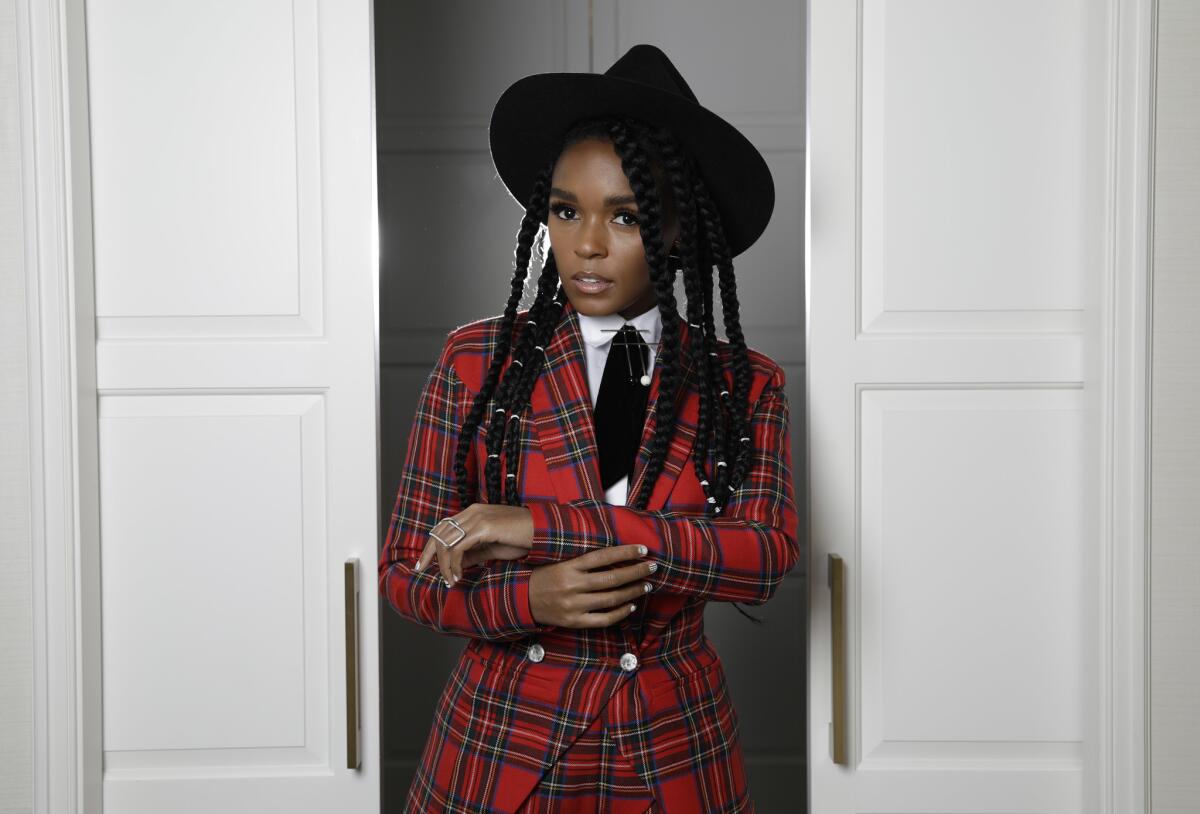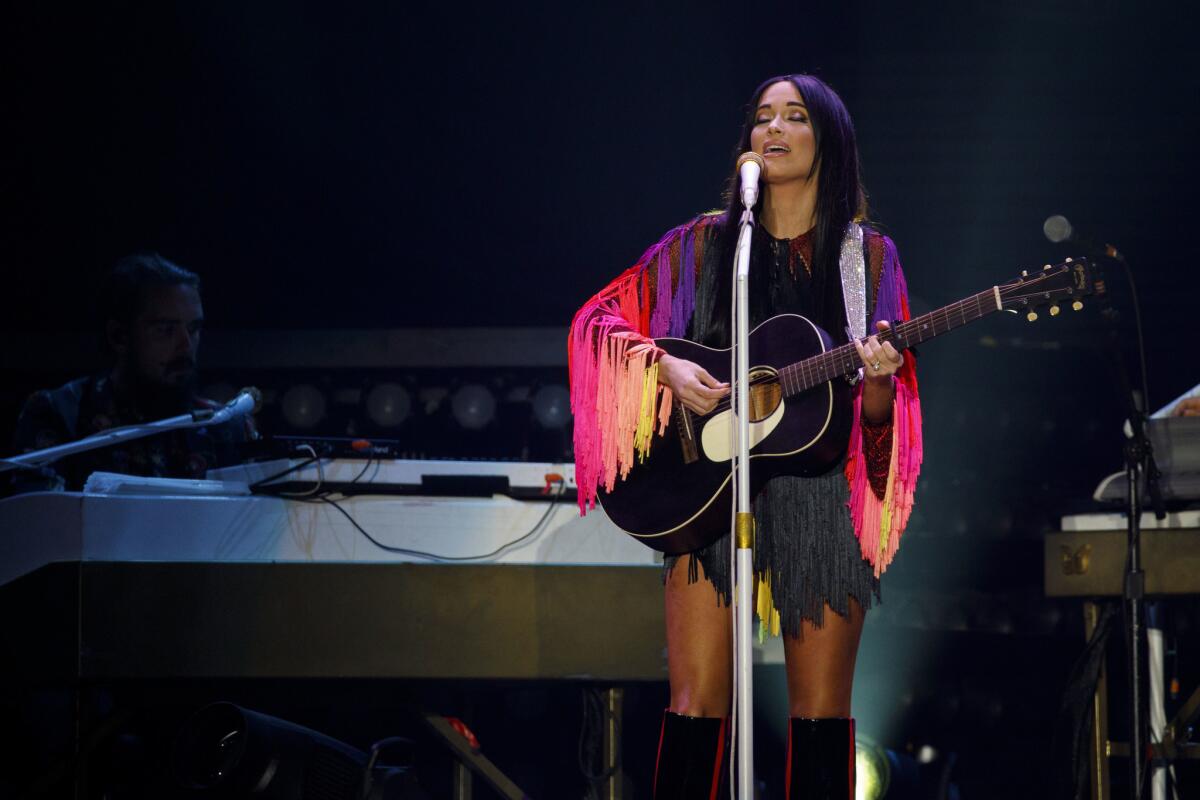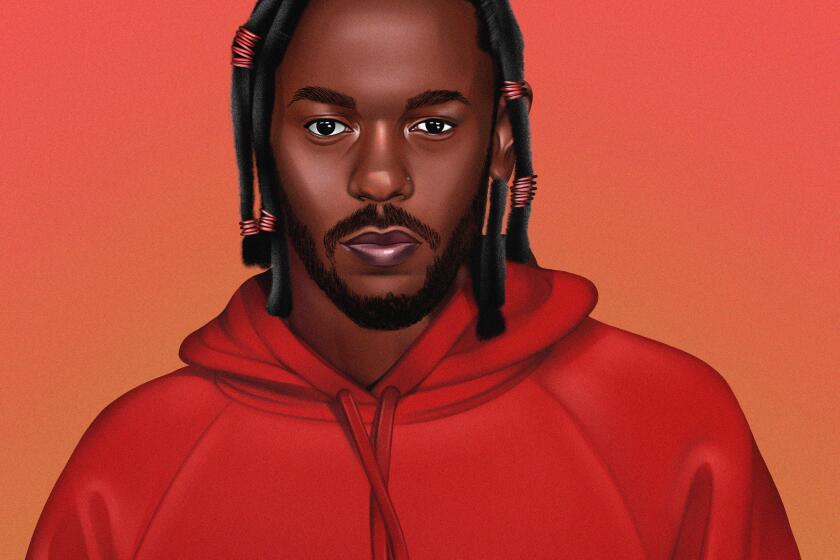Women take the lead at this yearâs Grammys, but will the music industry follow?

With scheduled performances by Lady Gaga, Cardi B, Camila Cabello, Kacey Musgraves, Janelle MonĂĄe and â hey, why not? â the always-welcome Diana Ross, Sunday nightâs Grammy Awards ceremony promises to reflect with some accuracy a record business that for years has been fronted by female artists.
Behind the scenes, though, the show will mirror a different situation: pop musicâs shortage of women in offstage positions of power.
Like much of the entertainment industry, the Grammys are controlled by men â in this case, the duo of Recording Academy chief Neil Portnow and executive producer Ken Ehrlich, whoâs overseen the CBS telecast since 1980.
And the world theyâre feting is no less male-dominated. According to a study published last week by the USC Annenberg Inclusion Initiative, women are systematically âpushed asideâ in the recording studio, where male producers outnumber female by a ratio of 47 to 1.
Analyzing the 700 most popular songs since 2012 (as ranked on Billboardâs Hot 100), the study found that women made up a mere 12% of the songwriters responsible for those tunes â and that just 10 guys wrote nearly a quarter of them.
Yet this yearâs Grammy nominations show signs of improvement.
Beyond the high number of nods for female performers â itself a gain from 2018, when not a single one was up for record of the year â the crop includes many women who write or produce for themselves or others.

âA Star Is Bornâ: Lady Gaga and Mark Ronson take a deep dive on âShallowâ Âť
MonĂĄe, Musgraves and H.E.R. are nominated as both artists and producers in the album of the year category, while song of the year recognizes seven female songwriters, including 24-year-old Sarah Aarons, who co-wrote âThe Middle,â performed by Zedd, Maren Morris and Grey.
Lady Gaga is up for the latter prize as well as record of the year with her smash âShallow,â from âA Star Is Born,â which she co-wrote and co-produced. And among Brandi Carlileâs six nods are three tied to her songwriting.
Then thereâs Linda Perry, the first woman to be nominated since 2004 for producer of the year â a Grammy no woman has ever won.
Why is this important? Because awards shows, to the extent that theyâre important at all, establish value systems that determine how creative industries operate. They influence judgments about who gets opportunities; they make visible to young people the kinds of jobs available to them.
And as this yearâs nominees demonstrate, weâre far better off as listeners when women pursue production and songwriting in addition to singing and rapping.

Iâll acknowledge here that Perryâs nomination is something of a lifetime-achievement honor; her recent work cited by the Recording Academy â on records by Willa Amai and Dorothy, among other obscure names â hardly moved the needle in 2018 as stuff by her competitors, including Kanye West and Pharrell Williams, did.
Of course, male producers have been enjoying symbolic nods for ages, so itâs only fair that a woman finally should too. (Sorry, Larry Klein.)
More to the point, though, itâs the trail Perry helped blaze in her heyday, back when she was writing and producing hits for Pink and Christina Aguilera, that some of her fellow nominees are now following â and which they in turn will widen for their successors.
Representation clearly matters.
For MonĂĄe and Musgraves, the result of each womanâs taking charge in the studio was an artistic breakthrough â âDirty Computerâ and âGolden Hour,â respectively â hard to imagine happening under somebody elseâs watch. Both albums draw deeply on the talents of other players and producers, but each does so in service of a personal vision that was probably easier to execute than to explain.

H.E.R.âs self-titled album is self-consciously rooted in the R&B auterism of mid-â70s Stevie Wonder, which is likely why it connected with so many Grammy voters. (Ditto Carlileâs willful throwback to the days of confessional singer-songwriters like Joni Mitchell and Carole King.)
And though âShallowâ was shaped by pros from both the record business and Hollywood, who would dispute that Lady Gagaâs experience with her own voice is what led to everyoneâs favorite part of the song?
âA prayer for freedom,â the singer recently called that famous whoa-oh-oh bit, and thank goodness she was empowered as a producer to showcase it.
This month, shortly before the USC study was released, the Recording Academy detailed a new program intended to bring more women into that kind of decision-making role.
Describing âa status quo that has existed for centuries,â Tina Tchen of the academyâs diversity task force said in a statement that âthe music industry is at a crossroads.â
Hereâs hoping the Grammy nominations are an indication that it knows which way to go.
More to Read
The biggest entertainment stories
Get our big stories about Hollywood, film, television, music, arts, culture and more right in your inbox as soon as they publish.
You may occasionally receive promotional content from the Los Angeles Times.











